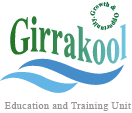26
SeptemberChiang Mai Rehab - The Conspriracy
Introduction:
Alcohol withdrawal is a condition which takes place when people abruptly stop or substantially reduce their particular alcoholic beverages intake after prolonged periods of heavy drinking. Its a complex and possibly deadly condition that impacts millions of people worldwide. This report is designed to offer an extensive summary of alcoholic beverages withdrawal, including its symptoms, treatments, and management methods.
Signs and symptoms of Alcohol Withdrawal:
The beginning and severity of alcoholic beverages withdrawal symptoms differ among individuals, depending on factors including the amount and extent of drinking and your all around health. Common observable symptoms include tremors, anxiety, irritability, nausea, vomiting, insomnia, increased heartrate, and sweating. In severe situations, individuals can experience hallucinations, seizures, or delirium tremens (DTs), a potentially deadly condition characterized by agitation, confusion, hallucinations, and fluctuating quantities of consciousness.
Treatment Options:
Whenever working with liquor withdrawal, it is very important to seek health guidance and assistance. The primary goal of treatment solutions are to properly handle detachment symptoms, avert complications, and facilitate the change to sobriety. Medical professionals can assess the extent of symptoms and figure out the appropriate amount of care. In mild instances, outpatient treatment might be administered, while more severe cases might need hospitalization.
Medicines widely used in alcoholic beverages detachment treatment consist of benzodiazepines, that really help reduce anxiety, relieve symptoms, and give a wide berth to seizures. Various other medicines eg antipsychotics, anticonvulsants, and beta-blockers might be employed to manage particular symptoms or co-occurring conditions. In addition, nutritional vitamin supplements, specifically thiamine (vitamin B1), tend to be prescribed to stop or treat prospective deficiencies associated with exorbitant drinking.
Management Techniques:
And medical interventions, different methods may be employed to control alcohol withdrawal effectively.
1. Supportive Care: Providing a supportive environment encourages a sense of protection and comfort. Including ensuring correct nourishment, hydration, and rest, also monitoring important signs and addressing any medical complications that'll take place during withdrawal.
2. Psychotherapy: Pursuing mental health assistance, including guidance or psychotherapy, can play a vital role in handling underlying psychological or psychological conditions that contribute to liquor dependency. These treatments help people develop coping strategies, manage triggers, and establish healthy options to alcohol.
3. Rehabilitation Programs: participating in Lanna Rehab programs, particularly inpatient or outpatient treatment centers, provides an organized and supporting environment for people seeking lasting recovery. These programs often combine medical treatments, counseling, and peer assistance to deal with the real, mental, and personal facets of alcoholic beverages addiction.
4. Follow-up Care: After doing preliminary detoxification and therapy, individuals should still seek ongoing care. This could involve playing support groups, attending regular treatment sessions, and obtaining follow-up evaluations to make sure correct real and mental health.
Summary:
Alcohol detachment is a challenging problem that needs medical attention and comprehensive assistance. Knowing the signs, treatment plans, and management methods can significantly help with assisting individuals safely navigate the withdrawal procedure and achieve long-term data recovery. By providing proper care and resources, we could enhance the results for people trying to over come alcoholic beverages addiction.

